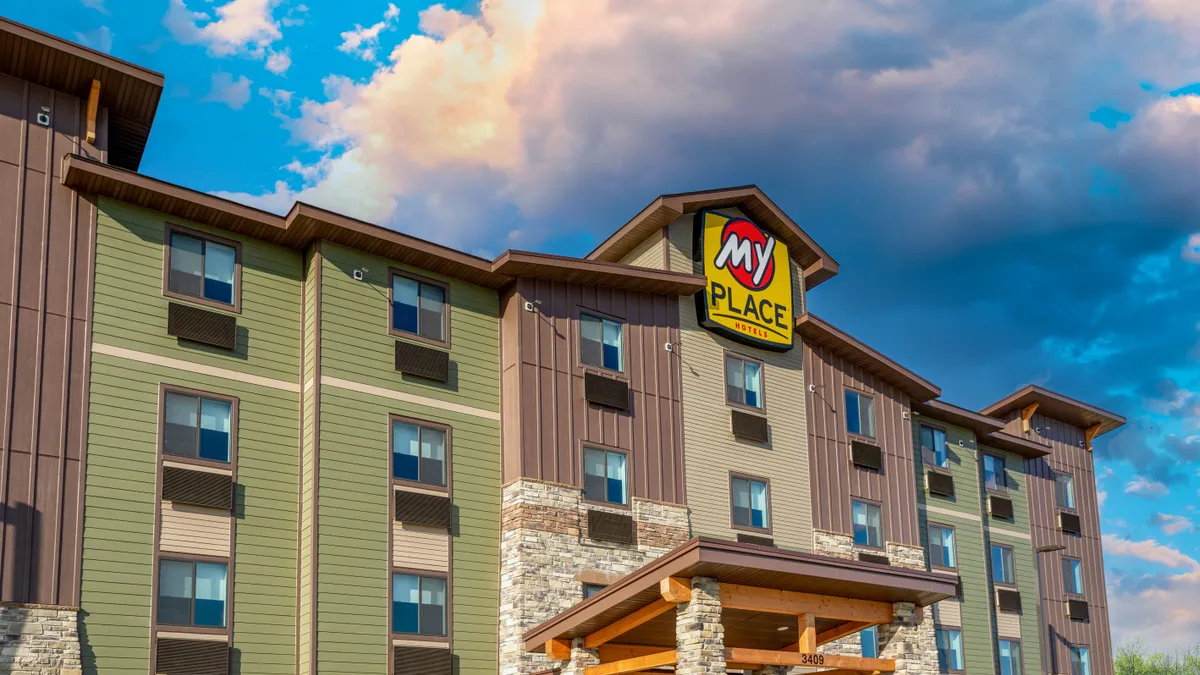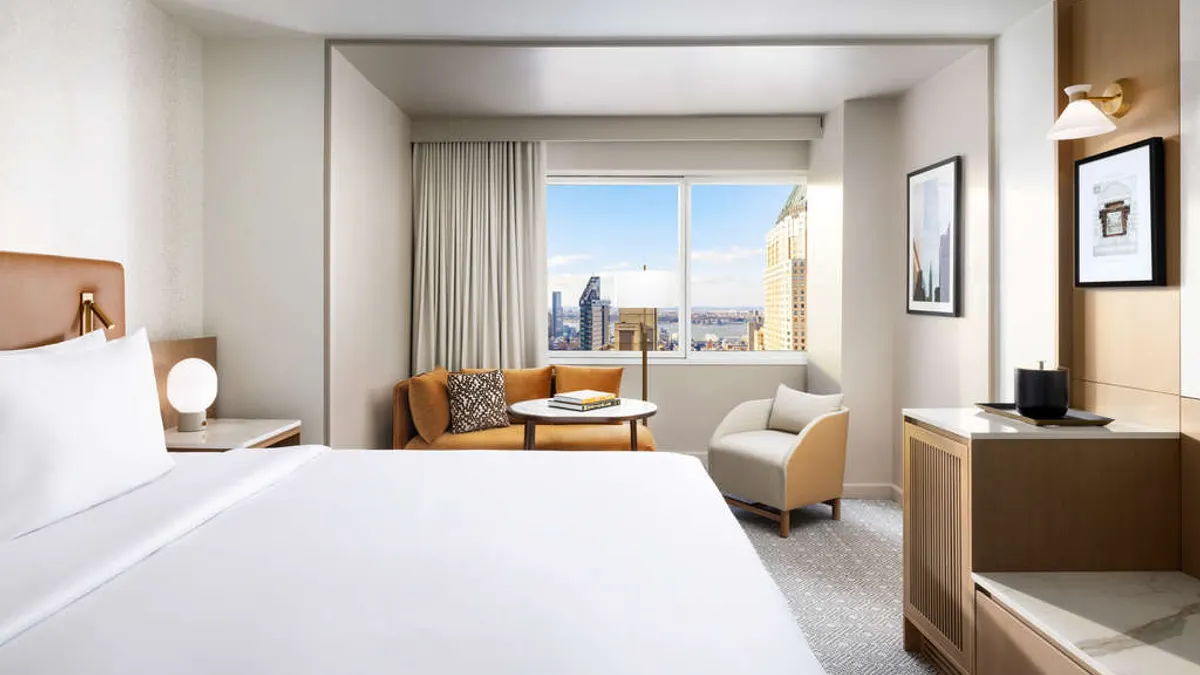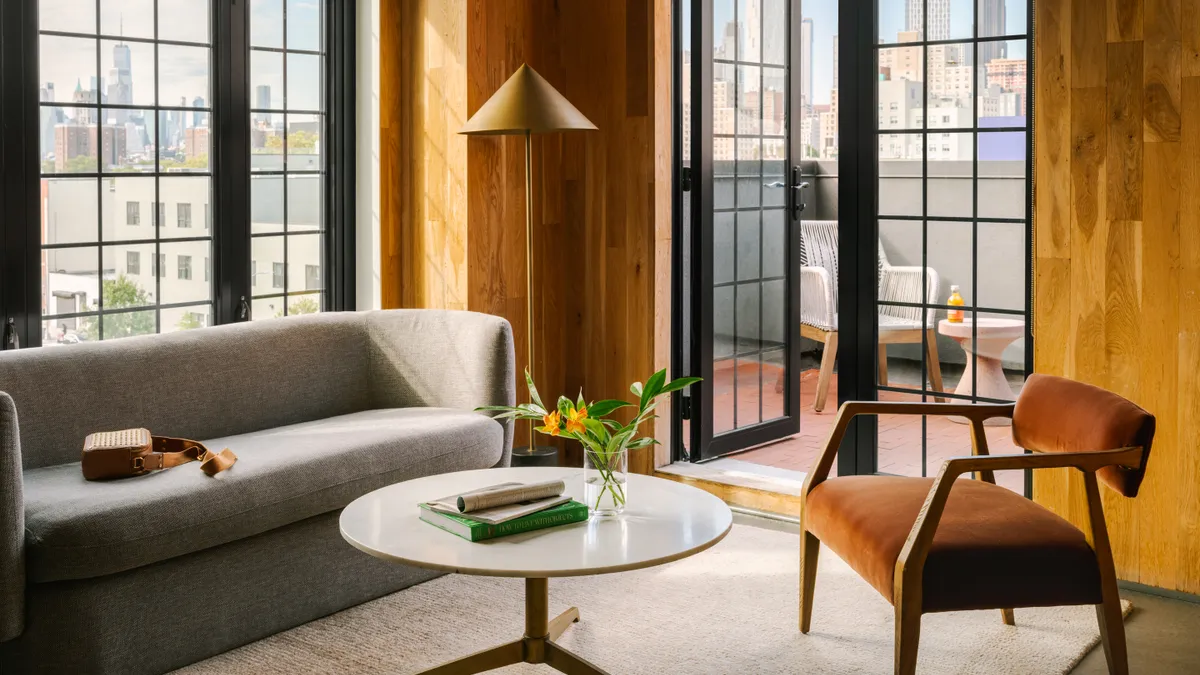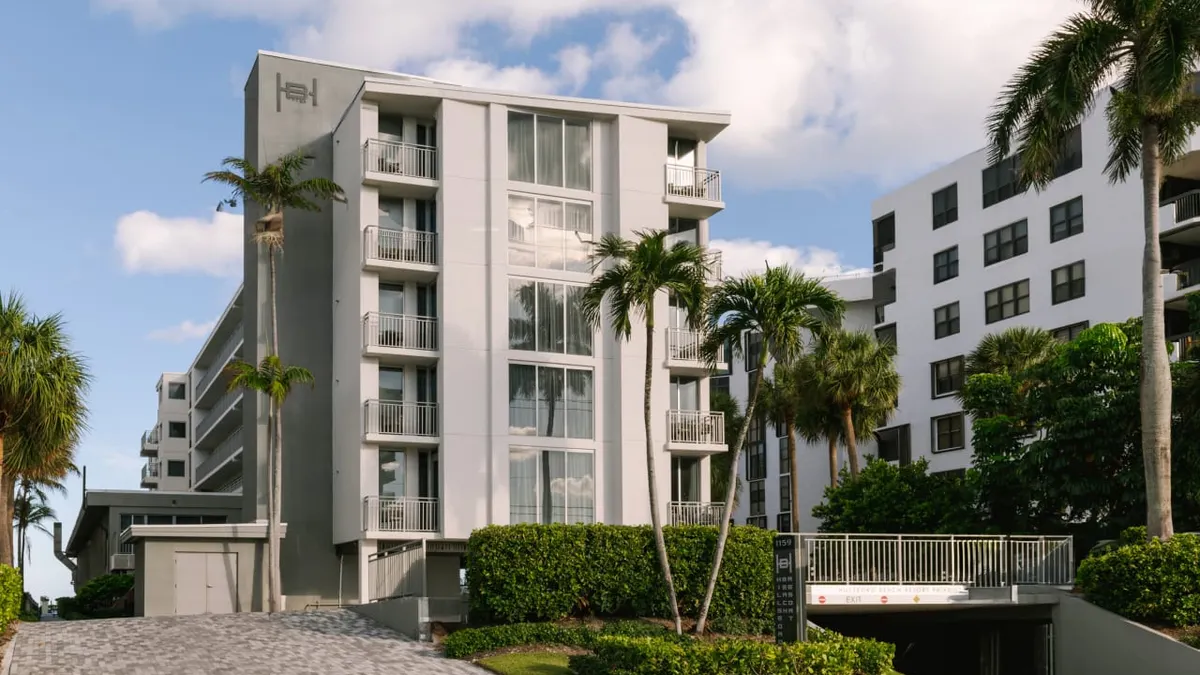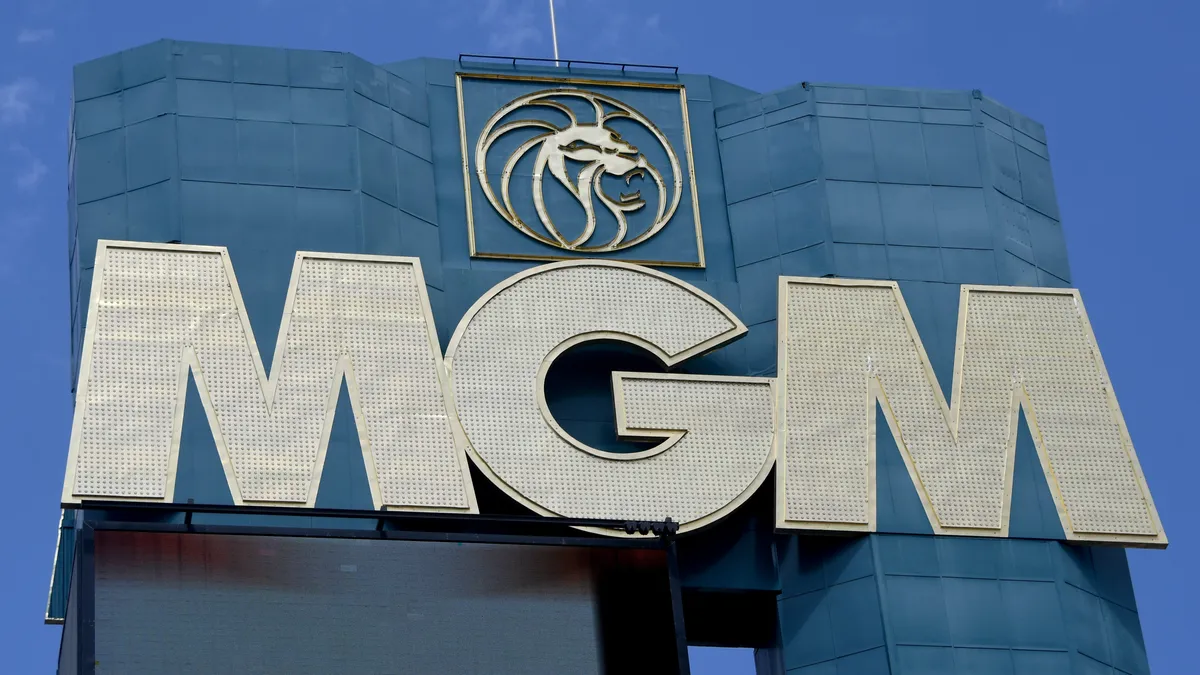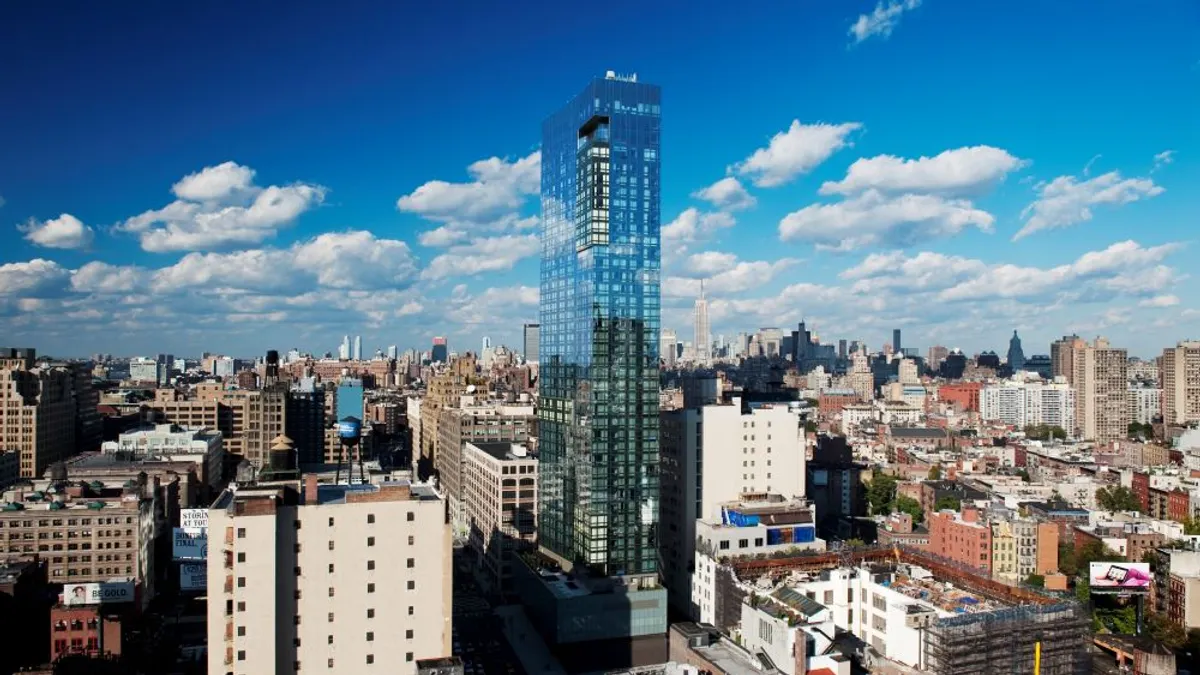Ryan Rivett has hospitality industry experience far exceeding his current role as CEO of pre-teen extended stay brand My Place Hotels.
The brand leader grew up surrounded by industry talk via his late grandfather, Ron Rivett, who co-founded the Super 8 brand in 1974 and subsequently sold it in 1993.
The pair joined forces on My Place in 2011, breaking into the then-less-crowded extended stay space, which has since experienced significant growth. The brand began franchising in 2014 — meaning this year marks its 10th anniversary.
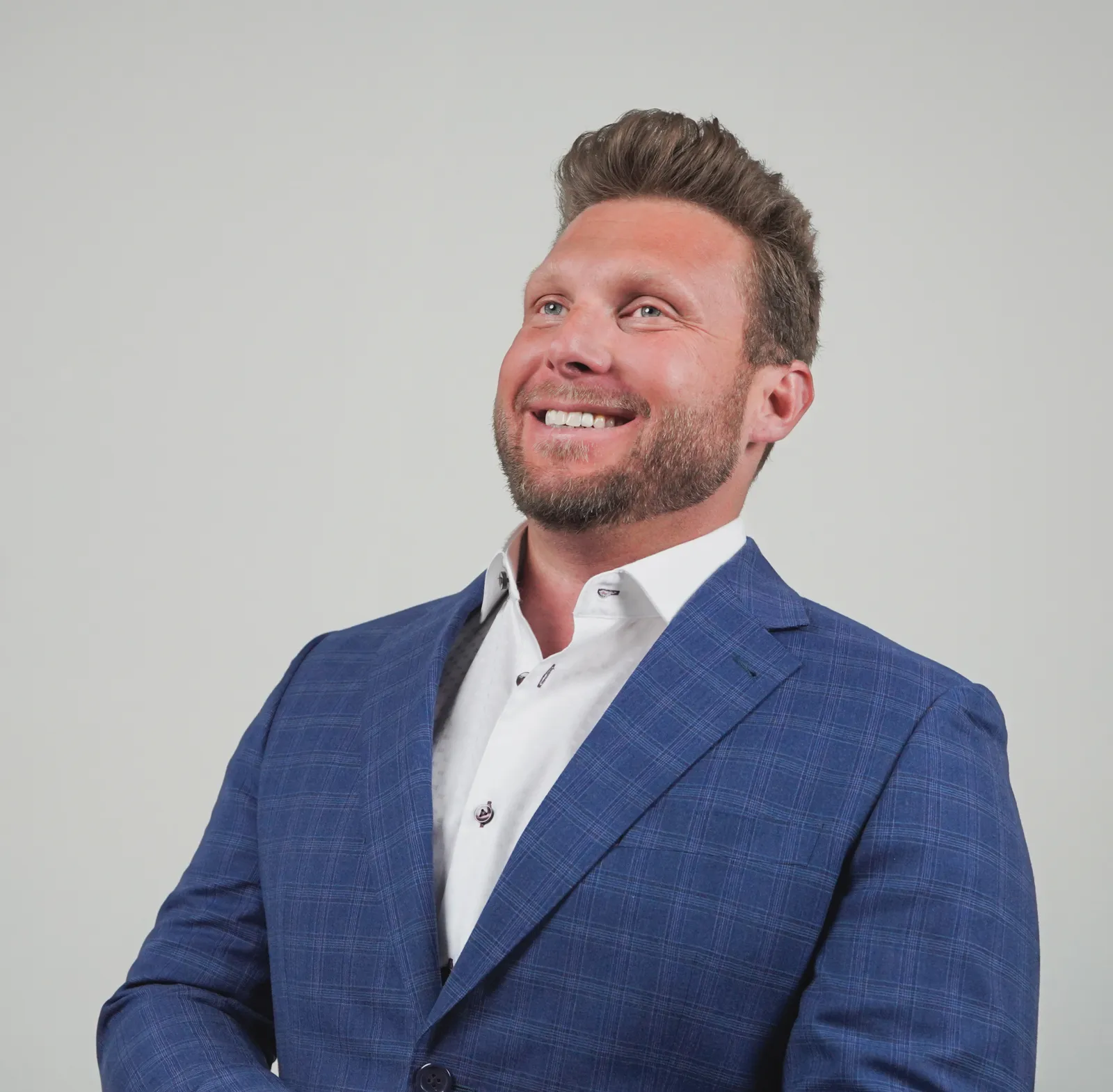
With big names like Marriott International and Hilton now competitors in the extended stay arena, Ryan Rivett told Hotel Dive that My Place stands out with a smaller, more efficient prototype model. He also shared how his family history in hospitality helped shape the brand and gave his outlook on the future of extended stay.
This interview has been edited for clarity and brevity.
HOTEL DIVE: Your grandfather, Ron Rivett, helped found Super 8 back in the early 1970s. Did you always want to go into the ‘family’ business?
RYAN RIVETT: I'm the third generation in our family since the hotel business began, but the second generation to become involved. Between [my grandfather] and I, there was nobody else that was in the business, and I got picked up from an early age and put in the middle of things as a result. So, for me, it was really just about business.
I'm not someone who grew up working behind the front desk of a hotel, but I am someone who grew up in and around the corporate office, the company conventions and being on trips and dinners with franchisees and investors. So, my perspective grew very quickly to include the nature of deal-making and the nature of relationship building through the franchise setting. And that, I'd say, has been the biggest impact for me — just really understanding how important relationships were to bolster business, and how close you needed to be to partners and franchisees.
Today, that continues to be a portion of our family and our company culture, and that’s been probably the biggest consistency in my life over the last 41 years.
How did your early exposure to the hotel industry shape the My Place brand?
When, in 2011, we began to contemplate the beginning of the [My Place] brand, looking back at the Super 8 brand is where we started.
[My grandfather grew the Super 8 brand from] the first property here in Aberdeen, South Dakota, to almost 1,100 properties in a 20-year period. And in that period, some 75% of the franchisees owned three or more Super 8 hotels.
Now, you have to be building great relationships and staying close to those relationships in order to maintain that kind of track record of success with multiple repeat franchise buyers.
"Although handshake deals are a little more difficult today than they were 40 years ago, there is a good element of our business that's done on integrity, and we really appreciate that. It helps us sleep better at night."

Ryan Rivett
My Place Hotels CEO
A lot has changed with that company and the way it's been run, but in that initial 20 years, the biggest factor of success was how close together everybody stayed in order to make the brand successful at each individual hotel. So, when we contemplated My Place, that was the premise.
It's the way we do business. You're transparent, you're close, you do things based on the relationship. Although handshake deals are a little more difficult today than they were 40 years ago, there is a good element of our business that's done on integrity, and we really appreciate that. It helps us sleep better at night.
What led you to break into extended stay, specifically?
At the time, one of the questions we asked while developing the concept was: “We’ve been building hotels, typically limited-service and select-service hotels of all the major brands, for the last 20 years, and we've been happy with that by and large, but what are the elements of that that we haven't been happy with? Where is it costing us too much, taking us too long? And where are we finding missed opportunities?”
We surveyed the properties we were operating in our portfolio at the time and found that there were a lot of guests that were staying in our limited-service properties that were staying for longer periods of time with inadequate facilities to do so.
At that time, extended stay represented roughly 5% of the hotel industry, so it was a segment wide open for us to capture. We saw a great opportunity there and jumped into it right away. And it was fairly natural to do so. In 2011, it was concept development. In 2012, we opened the first hotel, and we spent a couple years in proofing concept before beginning to sell to franchisees in 2014, so this year is our 10th anniversary of franchising.
With big hotel players like Marriott and Hilton expanding in extended stay, how does My Place stand out in an increasingly crowded room?
We've been at this for a little over 10 years now, and we've proven [our] concept a few times now. But what makes us stand out is that our primary prototypes are 64 units or 85 units. So, where all of the other products that have come out now are 100 to 120-plus-unit prototypes, we've maintained and been very happy with the smaller model. Particularly in a period when we're experiencing such inflation, especially relative to construction costs, we can find a lot of efficiencies.
Fundamentally, the My Place prototype model was designed to be able to locate on much smaller pieces of real estate than where competitors can. This allows us, in many cases, to fit into a really great market where the larger hotel parcels may have already been taken and capture market share in that location.
We’ve watched our properties succeed very well coming into new markets as an all-new construction brand. We can get to market quicker, ramp up more quickly and do it with a smaller staff.
Since founding My Place, how has the extended stay segment changed, and how have you had to reevaluate your business strategy?
We've definitely seen a lot of changes over the last 10 years. Our motto changed a bit in the first couple of years as we began to look at how we [could] create a revenue mix that provided more balance and more opportunity for growth.
We really scaled back to renting about half of our rooms to extended stay customers and renting more rooms on a retail basis to short-term-stay, transient leisure customers, and we found a lot of success in that. It allows us to be more competitive. And so our model is really more of a hybrid than it is a true extended stay model. That was a fairly early change that we made, and we found that through the pandemic period, we relied more on our extended stay customers because the transient customer definitely went away for a period of time, but then the bounce back was very quick in that short-term-stay segment.
"I truly believe that incorporating a hybrid model and maintaining balance within the revenue matrix for extended stay hotels is extremely important."

Ryan Rivett
My Place Hotels CEO
We've seen, actually, a decrease in length of stay. Some of that has to do with apprehension about price. We've seen labor costs, capital costs, a lot of things throughout the operating expense section of our financial statement increase over the last few years, and it's obviously taking work to keep those things paid. So prices have increased pretty substantially, and the customer has, in many cases, been looking to maintain their costs as low as they can, just like we are. So there's a little bit of contention between the hotelier and the customer in this period, as we're all adjusting to things costing more. Our model really hasn't changed as a result of that, but it's definitely changed the dynamics of revenue management.
Will extended stay continue to be highly desirable to owners and developers?
I definitely think the model and the extended stay product is going to continue to grow in desirability to the general public. I mean, who doesn't want to have everything they need?
We've seen people continue to look towards quality more so than they do toward price. Location and convenience to the mission of the trip continues to be the most important, but that quality has really elevated over price in the last few years as a result of health concerns and a lot of bad experiences at hotels across the country.
There's a lot of runway for the [extended stay] segment to be successful and the product to be successful. I truly believe that incorporating a hybrid model and maintaining balance within the revenue matrix for extended stay hotels is extremely important. As much as our economic cycles are getting shorter and shorter, that creates a demand for operators to be able to change quickly, be flexible and accommodate the different consumer trends.
What are My Place’s growth plans?
Our geographic expansion has really been franchise developer-centric. We don't have very specific areas or locations that we're going out and pushing people to develop. We're relying a lot on the franchise developers that are key in driving the growth of the brand and their observations and experiences with certain areas of the country or specific regions or markets.
So that's been very comforting for us, and has allowed us to move at a pretty good pace because the individual franchise developers are going to spend less time learning about the market because they're really gravitating toward areas of the country they've developed or currently have portfolios.
For My Place as of right now, just like so many of our other competitors with their overheads, it's a pretty blank canvas, and we have a lot of opportunity. Our biggest focus on franchise development in the last couple of years has been on territorial or multi-franchise development packages. From a capital perspective, those developers seem to be able to get projects off the ground much more quickly and consistently.
There's eight locations that are currently under construction that are part of a handful of multi-development deals. We've got a pipeline right now of 45 projects that will open in the next 24 months. And beyond that, [we have a] pipeline of about 40 properties.



